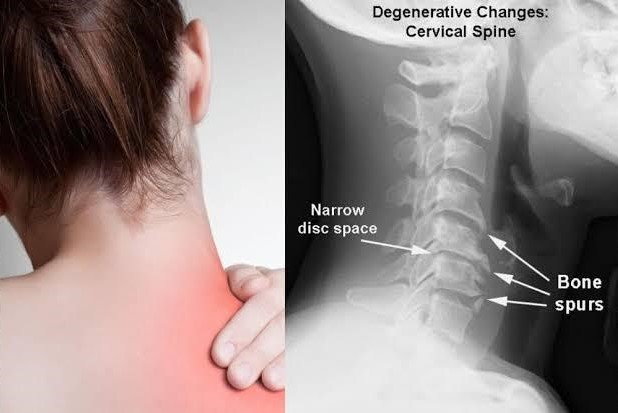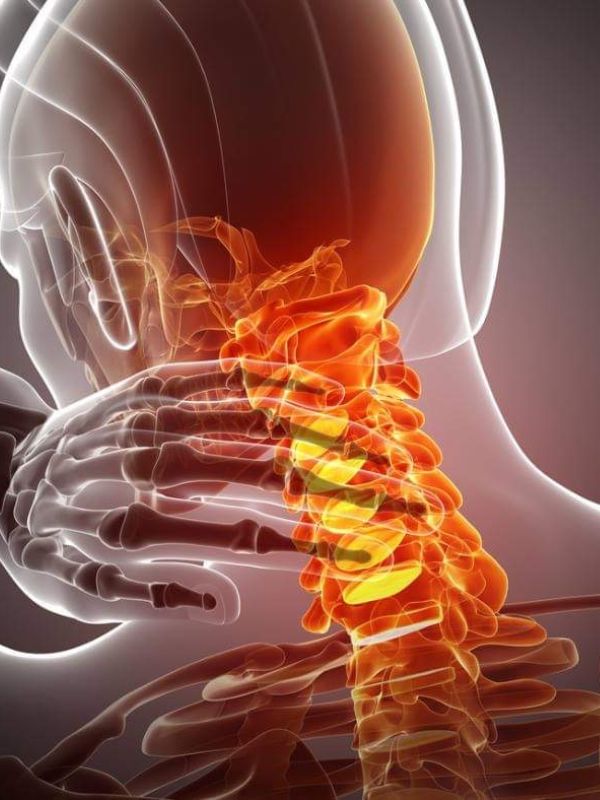Advanced Cervical Spondylosis treatment in Hyderabad
- One day discharge
- No surgery required
- Minimal procedure
- Join work in two days


What is cervical spondylosis
Causes of cervical spondylosis
These changes may include
- Age-related dehydration of the vertebral discs
- In herniated disks, the inner portion of the disc protrudes through the outer ring
- Overgrowth of bones (bone spurs)
- Cartilage degeneration caused by osteoarthritis (a progressive condition)
Risk factors of Cervical spondylosis
- Natural aging process(It is more common in people over the age of 50 or more)
- Neck injury or repeated strain on the neck.
- Genetic conditions( family history of the condition).
- Obesity
- Smokers
- Continuous work on desktops
Symptoms of cervical spondylosis
- Neck pain
- Stiffness, and
- Difficulty moving the neck
- Some people may also experience headaches, numbness or tingling in the arms or hands, and weakness in the arms or legs
Treatment for cervical spondylosis may include medications, physical therapy, and in some cases, surgery.
Diagnosis
→ During the physical examination, the functioning and range of movement of the neck, shoulders, arms, and legs are assessed, as well as reflexes and muscle strength.
→ The diagnosis of cervical spondylosis can be confirmed with imaging tests, such as X-rays, MRI scans, CT scans, and myelograms.
→ MRI scans are the gold standard for diagnosing cervical spondylosis- they can show a bulging disc, degenerated facet joints, spinal cords, spinal canals, muscles around, and soft tissue growths.
Medication
There are several potential causes of a slipped disk, including
Physical therapy
→ It is recommended to do some neck and upper backstretches to strengthen the neck muscles. These exercises should be avoided in cases of acute pain because they may exacerbate the problem.
Advanced treatment available for cervical spondylosis
Cervical spondylosis is a condition that involves degeneration of the bones and tissues in the neck. Treatment options for cervical spondylosis can vary depending on the severity of the condition and the specific symptoms a person is experiencing.
Some common treatment options for cervical spondylosis include
It is important to speak with a healthcare provider about the most appropriate treatment options for your specific condition. They can help you determine the best course of action based on your individual needs and circumstances. Regenerate response

Tell us about your Pain Conditions
Dr. PALLAVI DASYAM
Interventional Pain Specialist MBBS DA FIPMDr. PSS KIRAN
Interventional Pain Specialist
MBBS MD FIPM
